 W
WThe Foundling Hospital in London, England, was founded in 1739 by the philanthropic sea captain Thomas Coram. It was a children's home established for the "education and maintenance of exposed and deserted young children." The word "hospital" was used in a more general sense than it is today, simply indicating the institution's "hospitality" to those less fortunate. Nevertheless, one of the top priorities of the committee at the Foundling Hospital was children's health, as they combated smallpox, fevers, consumption, dysentery and even infections from everyday activities like teething that drove up mortality rates and risked epidemics. With their energies focused on maintaining a disinfected environment, providing simple clothing and fare, the committee paid less attention to and spent less on developing children's education. As a result, financial problems would hound the institution for years to come, despite the growing "fashionableness" of charities like the hospital.
 W
WAshlyns School is a mixed secondary school and sixth form located in Berkhamsted, Hertfordshire, England. The school was established in 1935 as the final location of the Foundling Hospital, a children's charity founded in London in 1739. The Berkhamsted building converted into a school in 1955.
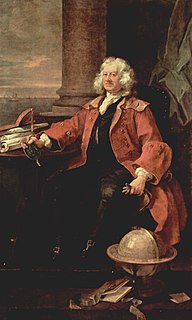 W
WCaptain Thomas Coram was a philanthropist who created the London Foundling Hospital in Lamb's Conduit Fields, Bloomsbury, to look after abandoned children. It is said to be the world's first incorporated charity.
 W
WCoram's Fields is a large urban open space in the London borough of Camden in central London. It occupies seven acres in Bloomsbury and includes a children's playground, sand pits, a pets corner, café and nursery. Adults are only permitted to enter if accompanied by children.
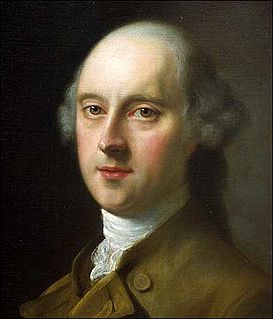 W
WWilliam Legge, 2nd Earl of Dartmouth, PC, FRS, styled as Viscount Lewisham from 1732 to 1750, was a British statesman who is most remembered for his part in the government before and during the American Revolution, and as the namesake of Dartmouth College.
 W
WThe Foundling Hospital Anthem, also known by its longer title "Blessed are they that considereth the poor" [sic], is a choral anthem composed by George Frideric Handel in 1749. It was written for the Foundling Hospital in London and was first performed in the chapel there. Handel wrote two versions, one for choir only and one for choir and soloists. Composed 10 years before his death, it was Handel's last piece of English church music.
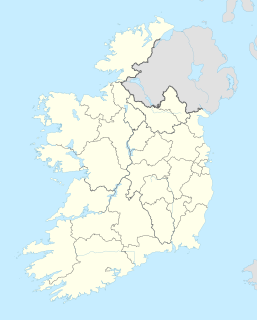 W
WThe Foundling Hospital was a hospital in Leitrim Street, Cork, Ireland.
 W
WThe Foundling Hospital was a hospital for abandoned children in Dublin, Ireland.
 W
WThe Foundling Museum in Brunswick Square, London tells the story of the Foundling Hospital, Britain's first home for children at risk of abandonment. The museum houses the nationally important Foundling Hospital Collection as well as the Gerald Coke Handel Collection, an internationally important collection of material relating to Handel and his contemporaries. After a major building refurbishment the museum opened to the public in June 2004.
 W
WHetty Feather is a book by best-selling author Jacqueline Wilson. It is about a young girl who is abandoned by her mother at the Foundling Hospital as a baby and follows her story as she lives in a foster home before returning to the Foundling Hospital as a curious 5-year-old. There are more books to the "series" of Hetty Feather, these are recommended for ages 11–15, according to the author. CBBC created a TV series based on the book, with Isabel Clifton portraying Hetty. The programme was first aired in 2015. In the United States BYUtv has the US broadcast rights and began airing it in March 2018. The book is followed by Sapphire Battersea.
 W
WJohn Hewlett was a prominent biblical scholar in nineteenth-century England.
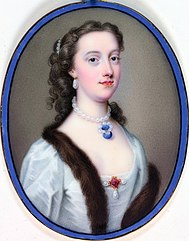 W
WMargaret Cavendish Bentinck, Duchess of Portland was a British aristocrat, styled Lady Margaret Harley before 1734, Duchess of Portland from 1734 to her husband's death in 1761, and Dowager Duchess of Portland from 1761 until her own death in 1785.
 W
WIn 1730 Thomas Coram approached aristocratic women with a petition to support the establishment of a Foundling Hospital, which he would present to King George II.
 W
WCharlotte Seymour, Duchess of Somerset, formerly Lady Charlotte Finch, was the second wife of Charles Seymour, 6th Duke of Somerset. Lady Charlotte was the first of twenty-one 'ladies of quality and distinction' who signed Thomas Coram's first petition, presented to King George II in 1735, calling for the establishment of the Foundling Hospital.
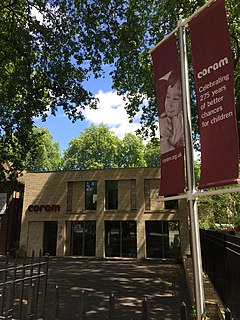 W
WThe Thomas Coram Foundation for Children is a large children's charity in London which uses the working name Coram.